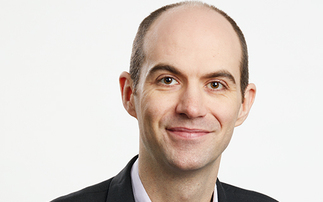Key points
At a glance
-
TPR is intervening more quickly and exercising some of its rarely-used powers more frequently such as section 231
-
Both DB and DC schemes should expect to see more regular interaction with the regulator
- Aiming to strike the balance between the carrot and stick, and explain what it is seeking to achieve
The regulator is cracking down on unacceptable levels of non-compliance and using some of its powers for the first time. Its chief executive Lesley Titcomb tells Stephanie Baxter what trustees can expect
The Pensions Regulator (TPR) has had an extremely busy year. It secured its first ever criminal convictions, and issued a record 65 fines in the second quarter over failures to complete basic trustee duties such as submitting scheme returns and defined contribution (DC) chair's statements.
After 2016 was marked by criticism over its role in the British Home Stores (BHS) saga, it has rightly responded by taking a harder line.
Having exercised an ‘educate, enable and enforce' approach in recent years (some would argue most of the focus has been on the educate part), the regulator is now focusing on being a ‘quicker, clearer and tougher' watchdog, in response to feedback from its stakeholders.
A bolder regulator
After speaking on a panel about the future of defined benefit (DB) schemes at the Pensions and Lifetime Savings Association (PLSA) annual conference in Manchester, TPR chief executive Lesley Titcomb tells PP: "We're hearing from the regulated community that it wants TPR to be tougher on those that don't comply. We're becoming tougher, intervening more quickly, and using some of our powers for the first time."
This is evidenced by three cases this year securing criminal convictions using its section 72 power under the Pensions Act 2004 to demand information from companies or schemes. Also, the watchdog recently issued a warning notice using section 231, a rarely-used power that allows it to impose a schedule of contributions if unsatisfied with what has been agreed between the trustee and employer. Titcomb told conference delegates this demonstrates it can and will intervene if a scheme is being treated unfairly, and said there are other potential section 231 cases in the pipeline.
"We're trying to use our existing suite of powers more, and demonstrate they work, but also get the balance of stick and carrot as a regulator," she tells PP. "Also, to demonstrate we're serious, to act as a deterrent to others, and to maintain confidence in pensions."
Post-BHS, the watchdog wants to see more clarity around funding requirements in the legislation, and extra information-gathering powers. The government is looking at whether TPR should have the power to intervene earlier or at certain times of a corporate transaction, which the regulator is open to in a limited number of circumstances.
For some, the fact TPR has already been able to come down hard on certain schemes this year for various reasons shows it does have enough powers under its belt.
While many have said it is about time the regulator toughened up, it has also been accused of being heavy-handed or abandoning its risk-based approach.
Non-compliance
Titcomb strongly defends coming down hard on failures to complete scheme returns on time, for example, saying it's a "fairly simple thing to do and a very important part of our interaction with them". For many schemes, this is the only interaction TPR has with them all year.
"We wanted to be able to act as a deterrent to other people, and there is some evidence it is starting to do that but the jury is still out as we're at an early stage. We will review the success of our campaign."
It is unclear why some pension funds still struggle with the scheme return requirement, when it has long been a legal requirement under section 63 of the Pensions Act 2004, and the smallest schemes only have to do it once every three years. Could it be partly down to some trustees struggling to keep up with higher governance requirements?
"I absolutely recognise that being a pension trustee is a responsible and complex job, but a trustee of a charity, for example, is subject to requirements where they have to send an annual return to the Charity Commission," says Titcomb.
"I think supplying a basic amount of data to the regulator, keeping up notification of who the contact point is, and some basic information when you're looking after other people's money, is probably the minimum we can expect, and trustee law and we as a regulator are expecting rather more of people."
Having worked in compliance for 25 years, she is very conscious of the need to strike the balance between the carrot and stick. But above all, she is "absolutely convinced" regulators have to explain what they are doing and seeking to achieve.
"Regulators have to accept there will always be points of view of where we should or shouldn't sit on the spectrum, and we have to be prepared to say ‘this is our view or we're moving in this direction because we don't think we were in quite the right position on the spectrum before'.
"I have to be prepared to defend the actions I'm taking, and have to show whether or not it was effective in driving up compliance."
One of the challenges is that even as TPR is trying to be clearer and make it as easy to comply as possible, there is a rump of schemes that are irresponsive to its messages.
"We have some evidence that there is a whole number of trustees that don't open emails from the regulator," says Titcomb. "If they're not prepared to do that, what does that tell us about them and how they're running the scheme and looking after members' interests? Secondly, they might expect a phone call from us if they're not responding to emails."
Increased interaction
The regulator is working out how to get those schemes to engage, and will take necessary action if they continue to fall below expectations.
Schemes should expect to see more regular interaction with the regulator, across both DB and DC.
Although TPR believes most DB schemes remain affordable for their employers, many schemes should do more to tackle their deficits and reduce risk to their members and to the Pension Protection Fund (PPF).
It will therefore become more proactive in its interaction with certain DB schemes, which may lead to a "limited number" having a "more active ongoing relationship" with the watchdog. Whereas, it has previously only engaged with schemes around triennial valuations, or where it receives a limited number of notifications.
It is also taking a harder line where schemes fail to submit valuations on time, after around 10% of schemes completed their valuation later than the statutory deadline in 2016.
"We are already trying to engage with more schemes before the valuation - not just with the trustees but also the employer, in the hope we can understand any issues, and make our expectations clear," explains Titcomb. "That then means the valuation discussions between the employer and trustees can progress quickly, and end up submitting the valuation on time.
"Where we have a particular issue with a scheme - which could be on funding or the recovery plan - you can expect us to be asking questions promptly, setting clear deadlines for when we want a response by, and generally moving things through the process quicker."
On the DC side, the regulator previously looked at scams, the annual return, or where it was notified of particular issues with trustees or governance, to interact with schemes. Now with the introduction of the chair's statements, it is going beyond that and looking at the substance and quality of governance in certain situations and value for members.
Trustee tools
In addition to increasing interaction with individual schemes, it will also help to drive up compliance levels through thematic work, tools, or making its expectations clearer in drafting its guidance.
The thematic work will include talking to and meeting with a range of schemes to look at how they consider if they provide value for members.
On the governance and administration side, TPR is trying to create more tools that will be useful to trustee boards.
"Are there tools or checklists we can offer for less experienced trustees, those who may not have advisers who give them such things, to make their role easier and help understand what they should focus on?" says Titcomb.
"A good example is one we're producing on issues to think about when selecting your chair; another is work we're doing on definition and standards for professional trustees."
Such tools may help schemes, but the unacceptable levels of non-compliance with very basic trustee duties suggest there is something fundamentally wrong. The regulator's ‘quicker, clearer and tougher' approach is therefore correct as it demonstrates it is serious and provides a deterrent.
It is inevitable that the views of regulators will often be at odds with those of their stakeholders.
For example, the regulator - and indeed the PPF and DWP - has been criticised by some for saying there is not a systemic problem with sustainability or affordability in DB. In fact, many in the wider industry believe there is a systemic problem.
DB sustainability
But is there a case for building consensus across the industry to be able to move forward and find the right solutions?
Titcomb says this is a very difficult area on which to build consensus, as there will inevitably be varying points of view on it.
"We see some schemes and some employers who are stressed at times, but there are ways of working through that. We also see a group of schemes where we think the employer could afford to pay more, and where perhaps they're not getting the balance right between the interests of the pension fund members and shareholders, and we challenge those situations where we see them.
"But if you're a finance director and paying millions and millions of pounds into DB schemes which perhaps only apply to a proportion of staff and probably aren't open to accrual anymore, and probably broadly ex-staff in most cases, you may be thinking ‘what else could I do with that money?'. Then of course you're going to ask if the pension scheme is getting too much consideration, and are we favouring the older part of the population to the disadvantage of the younger part?
"All these points of view are valid and relevant, but from my perspective as a regulator, my duty is to protect the members of the scheme and their benefits and to protect the PPF. I'm interested in ensuring the right level of funding is made available to those schemes without pushing the employer into unnecessary difficulty."
There are two narratives in the industry at the moment; one that the DB system is broken and must be fixed with radical solutions such as superfunds, and the other is the system is not broken but can be improved on without radical change.
Writing in PP last week, First Actuarial founder Hilary Salt lamented that the role of the PPF in protecting members at a stressful time tends to be underplayed, and that ending up in the lifeboat can be perceived by the public as a disaster. We need to learn to love the PPF a bit more, she said.
Titcomb agrees the "excellent PPF" is an important part of the protection network for members, and points out the situation is "so much better" than it was before the lifeboat fund came into existence.
"We need to recognise it does provide significant support to members whose sponsor becomes insolvent. It's not perfect but certainly significantly better than nothing at all. We take our responsibility to protect the PPF very seriously - we recognise it's funded by other schemes and employers. It's why we will step in and use our avoidance powers if we feel people are seeking to evade their responsibilities or cause material detriment to schemes with their actions."
While the current DB system is better than nothing, it is healthy to consider where improvements can be made and be proactive rather than reactive. The regulator has taken criticism on board and is responding by being quicker, clearer and tougher. However, it is not yet clear whether this will be enough, and whether the system is ripe for radical reform.
Position Titcomb has been chief executive of TPR since March 2015. She is responsible for securing that the legislative objectives and functions of the watchdog are exercised efficiently and effectively.








